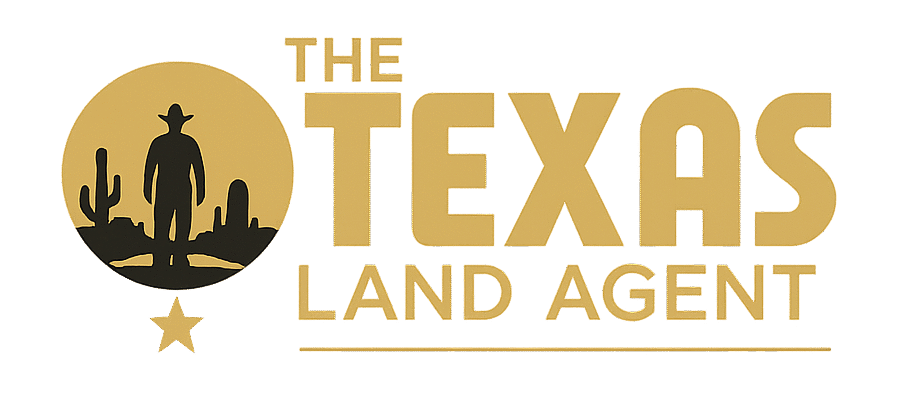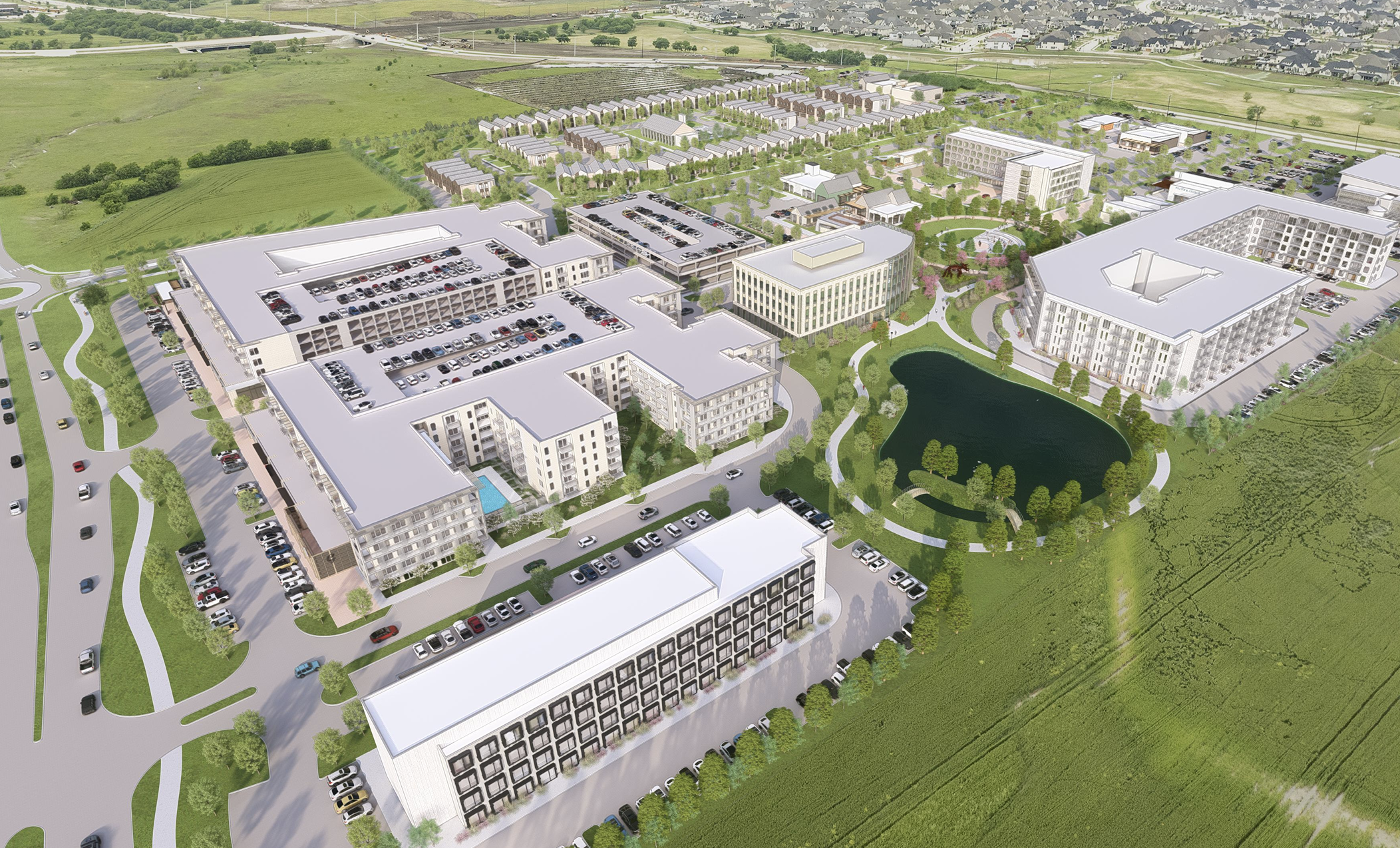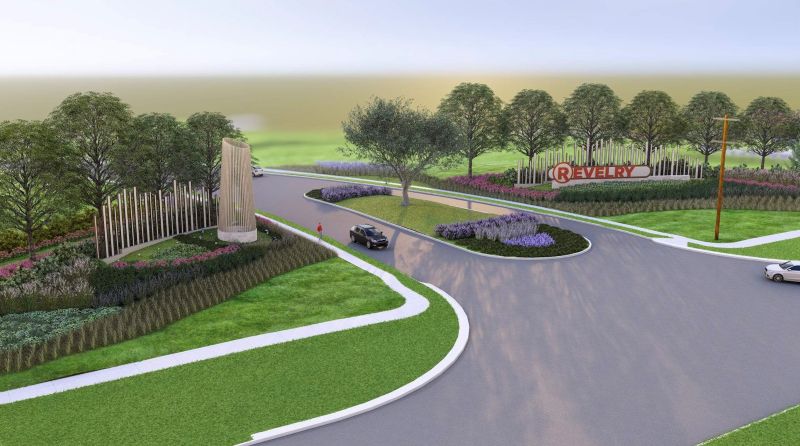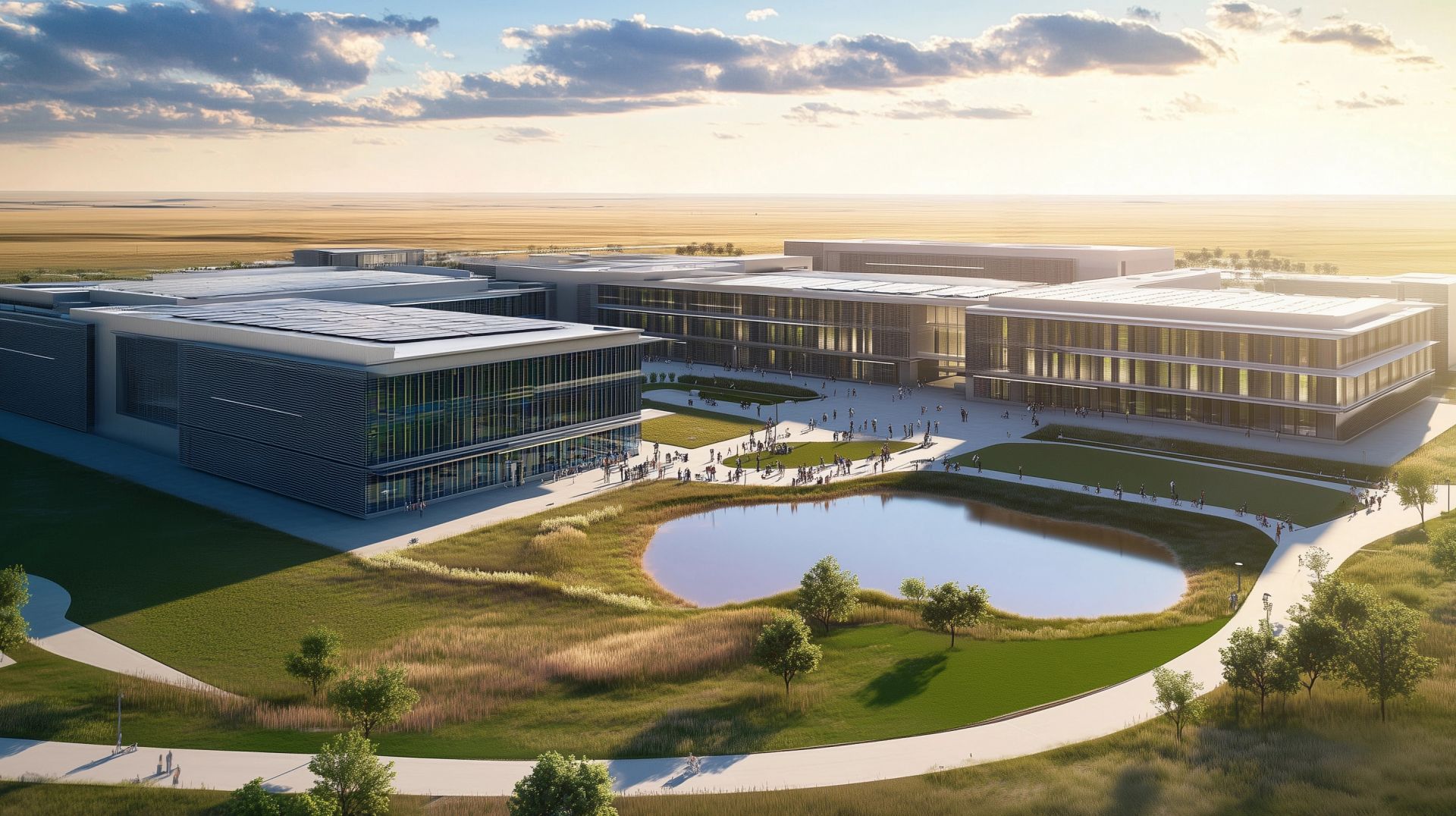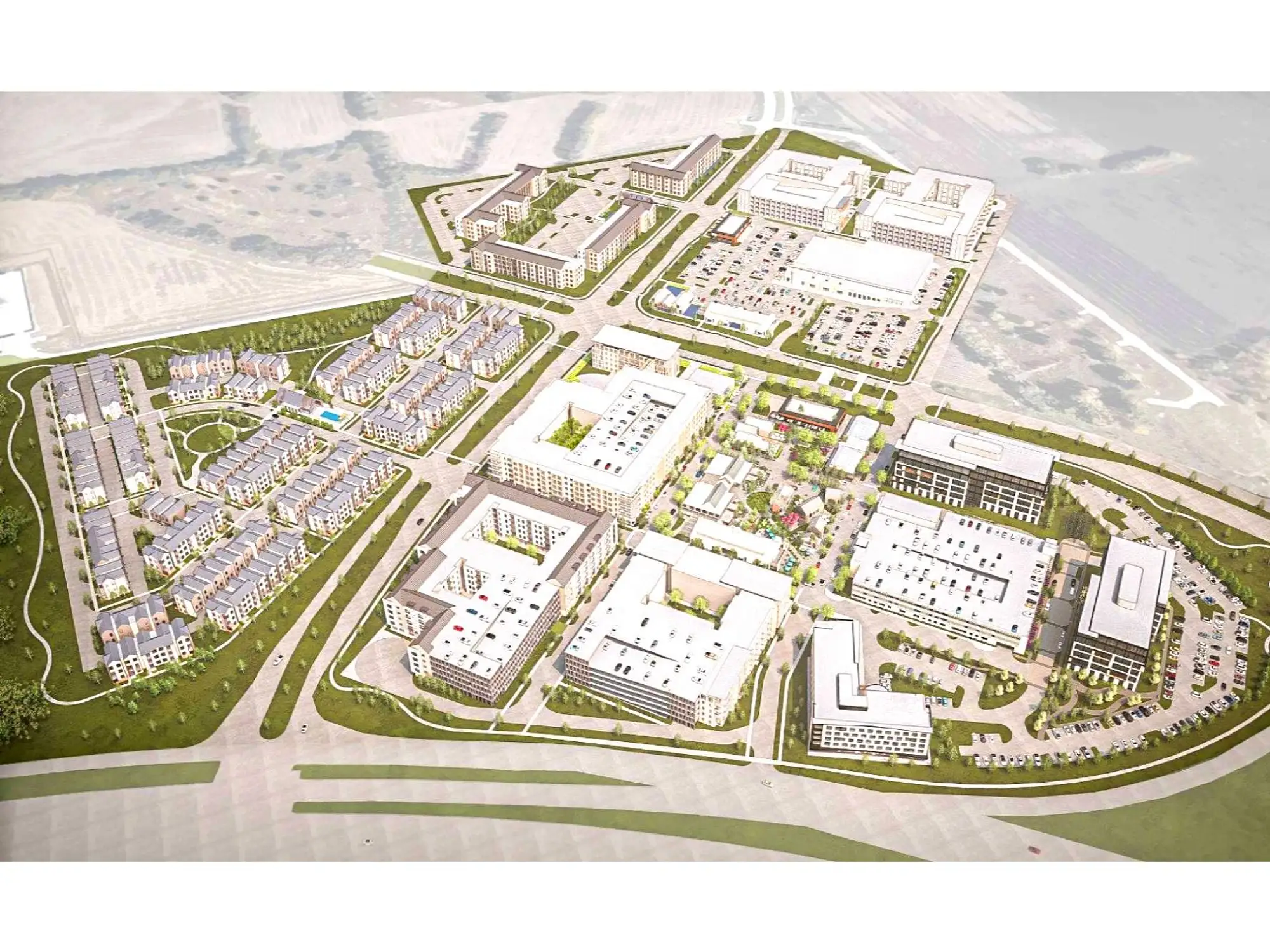Prosper town council tables the $313.6m Bella project rezoning request on November 11, delaying a decision on the mixed-use development until February 2026. The 62-acre project at First Street and Legacy Drive faced pushback over multifamily density, phasing plans, and whether the development merits apartments in the Dallas North Tollway corridor.
The project requires rezoning from agricultural and planned development to mixed-use designation. Developers revised plans after multiple work sessions, reducing units from 550 to 435 multifamily and 94 to 88 townhomes. They replaced a second hotel with additional restaurants and retail. Council remained unconvinced.
What Bella Prosper Would Include
The proposed development aims to create a walkable district with distinct subdistricts:
Neighborhood Subdistrict:
- 435 multifamily units (some with first-floor retail)
- 88 townhome units
- 249 assisted living units
Retail Subdistrict:
- Full-service hotel
- Restaurants and retail shops
- Office buildings
- Amphitheater with trail connections to the town’s existing system
The 4.1-acre park component would link into Prosper’s broader trail network, positioning the site as recreation-adjacent.
Why Council Members Rejected the Proposal
Mayor David Bristol made clear that Dallas North Tollway proximity doesn’t automatically justify multifamily zoning. “Just because a piece of property is in the tollway district does not automatically grant it multifamily rights,” Bristol stated.
Council member Jeff Hodges questioned whether the revisions warranted apartments at all. “I just don’t see it,” Hodges said. “I don’t think this is something we would want to lend those to.”
Mayor Pro Tem Amy Bartley highlighted phasing concerns. The residential sections would precede most retail construction, potentially leaving an incomplete development for years. “It needs to be a high-end project from start to finish,” Bartley said.
Deputy Mayor Pro Tem Chris Kern wanted clearer value exchange. “I’m still searching for that special, unique tradeoff that we would get as a balance to the need to have multifamily,” Kern noted. He warned against creating false expectations for the applicant.
What This Signals for Tollway Corridor Land Strategy
Prosper’s standards for mixed-use approvals continue tightening, particularly around multifamily density. The town approved other tollway projects like the Prosper Arts District, a separate $300 million development that received zoning in 2024. That project emphasizes sports-focused hospitality and cultural amenities with less multifamily concentration.
The Bella Prosper development delay suggests Prosper will scrutinize phasing schedules and architectural quality more closely. Developers can’t rely on tollway adjacency alone to secure multifamily entitlements. Council expects demonstrable public benefit unique amenities, infrastructure contributions, or design excellence that justifies higher density.
For landowners in the Dallas North Tollway corridor, this creates both constraint and opportunity. Projects with clear quality markers and phasing guarantees may command premium positioning. Sites that can accommodate lower-density formats like townhomes, assisted living, or hospitality without heavy multifamily components may face smoother approval paths.
Timeline and Next Steps
The rezoning request returns to Prosper Town Council on February 24, 2026. If approved, construction would begin in 2027 and extend through 2035. The extended timeline compounds the phasing risk Bartley flagged nearly a decade of construction phases requires ironclad sequencing to avoid half-built scenarios.
Developers have three months to refine their proposal. Expect adjustments around multifamily scale, phasing commitments, and design upgrades that meet Prosper’s “high-end project from start to finish” standard.
Implications for Prosper Land Investors
Prosper’s approval process now functions as a quality filter, not just a zoning exercise. The town’s growth trajectory population surged from 9,423 in 2010 to 46,087 in 2025, a 389% increase gives it leverage to demand premium developments. Annual growth rates have averaged 9-13% over the past five years.
Mixed-use projects in Prosper require more than financial viability. They need architectural distinction, phasing clarity, and amenities that justify density. Land positioned for lower-intensity uses may carry less entitlement risk than sites dependent on multifamily approvals.
Monitor the February 24 council meeting. If Bella Prosper secures approval after revisions, note which concessions moved the needle. If it fails again, Prosper’s tolerance for multifamily in the tollway corridor contracts further.
Request a Prosper Land Market Brief to identify properties aligned with the town’s evolving development standards and mixed-use approval patterns.
